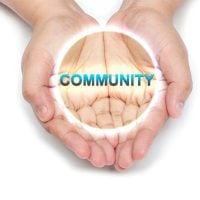Deadline: 5-Mar-23
The Auckland Council is seeking applications for the Love Food Hate Waste (LFHW) Fund which targets the reduction of food waste going to landfill through household behaviour change.
The national Love Food Hate Waste campaign aims to get people to talk about and be aware of the food they waste and inspire them and their families to reduce their food waste at home.
Food waste makes up 45 per cent of the average Aucklander’s rubbish bag or bin. Of this, waste audits have shown that a significant proportion could have been avoided in the first place or eaten.
Love Food Hate Waste (LFHW) is a behaviour change programme aimed at informing individuals of the consequences of food waste and the benefits of its reduction both in terms of personal cost (financial savings) and environmental harm reduction (less waste to landfill, reduced CO2 emissions from food break down, less food production needed or better distribution).
Types of projects funded by the grant
Funding Priorities
-
Educational opportunities that focus on delivering innovative activities to change wasteful behaviours with a clear call to action, such as:
- planning food purchases and meals
- creative cooking or recipes for leftovers (or commonly wasted items)
- tips for good storage of food
- raising awareness of the problem of household food waste.
Funding Information
- Grants of up to $5000 will be available from the LFHW Fund.
Outcomes
- This grant scheme will support projects that raise awareness and help Aucklanders to make changes through cooking or budgeting skills, workshops and demonstrations.
Funding assessment criteria
-
Applications will be assessed against the following criteria outlined:
- Campaign alignment: proposals must align with best practice methods and guiding principles of the Love Food Hate Waste campaign. The project should include appropriate take away messages or a call to action to influence behaviour change.
- Community benefit and inclusiveness: the extent of community participation/benefit in this project. Also, the extent that you collaborate/connect with others to share knowledge. Consider how many Aucklanders the activity will reach. Will the project reach their culturally and linguistically diverse communities?
- Value for investment: projects should be practical and feasible. Activities and items funding is requested for should be reasonable and linked to outcomes sought through the Love Food Hate Waste campaign. Does the project reach a new group of people who haven’t engaged with the campaign before?
For more information, visit LFHW.









































